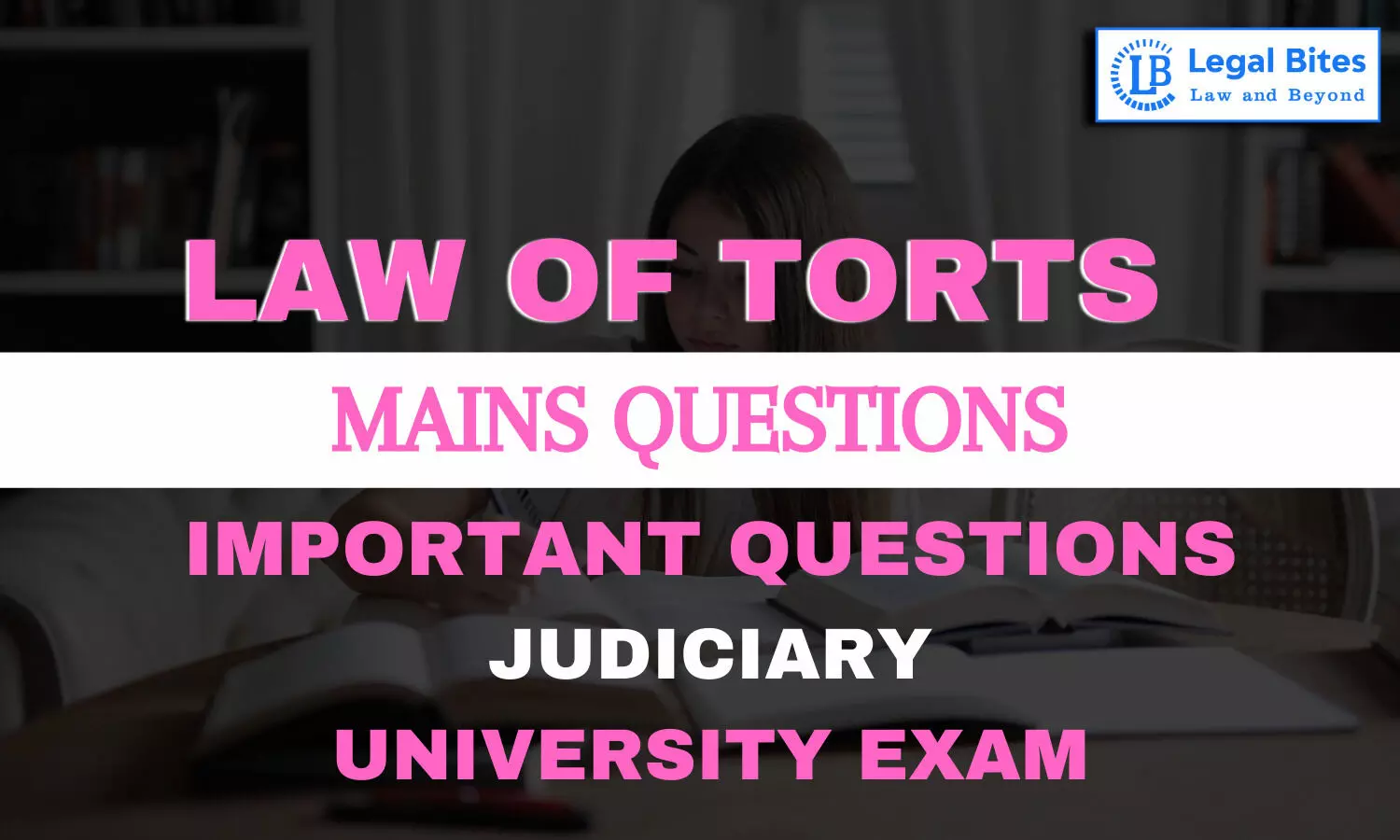The maxim 'res ipsa loquitur' is not a rule of law. It is a rule of evidence benefiting the plaintiff by not requiring him to prove negligence. Prove the above statement by explaining the maxim with reference to judicial decisions.
Find the question and answer of Law of Torts only on Legal Bites;

Question: The maxim 'res ipsa loquitur' is not a rule of law. It is a rule of evidence benefiting the plaintiff by not requiring him to prove negligence. Prove the above statement by explaining the maxim with reference to judicial decisions. [BJS 2011]Find the question and answer of Law of Torts only on Legal Bites. [The maxim 'res ipsa loquitur' is not a rule of law. It is a rule of evidence benefiting the plaintiff by not requiring him to prove negligence. Prove the above statement...
Question: The maxim 'res ipsa loquitur' is not a rule of law. It is a rule of evidence benefiting the plaintiff by not requiring him to prove negligence. Prove the above statement by explaining the maxim with reference to judicial decisions. [BJS 2011]
Find the question and answer of Law of Torts only on Legal Bites. [The maxim 'res ipsa loquitur' is not a rule of law. It is a rule of evidence benefiting the plaintiff by not requiring him to prove negligence. Prove the above statement by explaining the maxim with reference to judicial decisions.]
Answer
The maxim "res ipsa loquitur" is a Latin phrase that means "the thing speaks for itself." In legal terms, it is a rule of evidence that allows the plaintiff to shift the burden of proof to the defendant in certain cases.
Under this rule, the plaintiff is not required to prove negligence directly but can instead rely on circumstantial evidence of the circumstances surrounding the injury or damage. This evidence may be enough to create a presumption of negligence on the part of the defendant.
For example, in the case of Scott v. London and St. Katherine Docks Co. (1865), a plaintiff was injured when a barrel of flour fell from a crane while being unloaded from a ship. The plaintiff argued that the accident could not have occurred without negligence on the part of the defendant, and the court agreed, holding that the doctrine of res ipsa loquitur applied.
Similarly, in the case of Byrne v. Boadle (1863), a plaintiff was injured when a barrel of flour fell on him from the window of a flour dealer's shop. The plaintiff argued that the accident could not have occurred without negligence on the part of the defendant, and the court again agreed, holding that the doctrine of res ipsa loquitur applied.
In both cases, the doctrine of res ipsa loquitur allowed the plaintiff to establish a prima facie case of negligence without having to prove it directly. This shift in the burden of proof can be very beneficial to the plaintiff in cases where it is difficult to prove negligence.
Therefore, it can be concluded that the maxim "res ipsa loquitur" is indeed a rule of evidence that benefits the plaintiff by allowing them to rely on circumstantial evidence to prove their case. It is not a rule of law but a tool that can be used in certain circumstances to make the plaintiff's case stronger.





